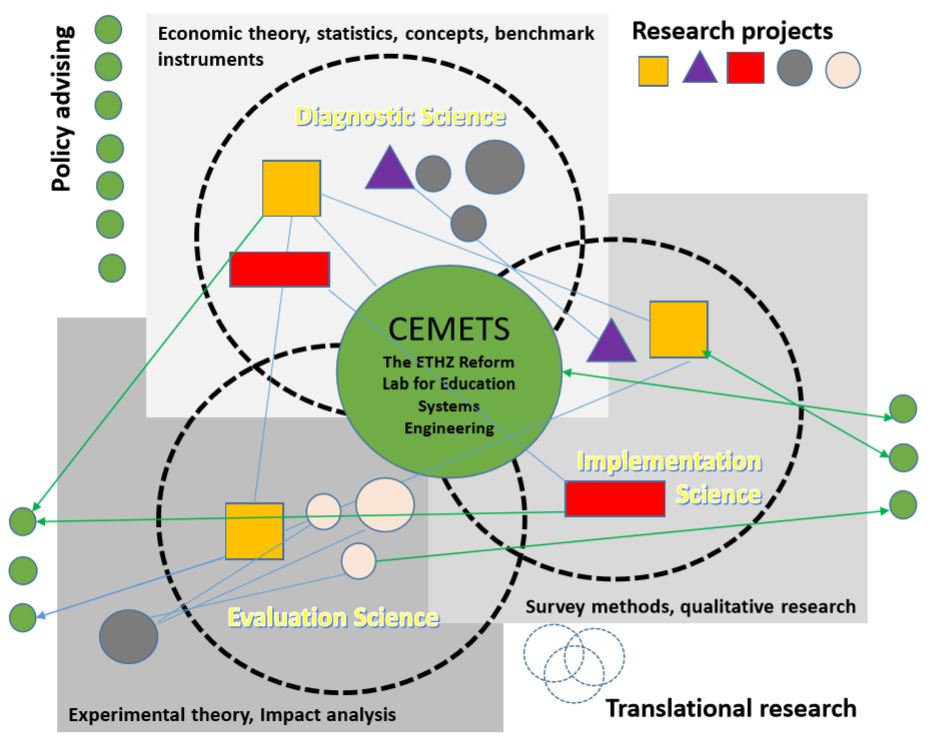Translational Research
At CES we conduct translational research. This means that we transfer research findings generated in our group to the educational systems of other countries. We continue to develop new projects and test new concepts with our partner countries.
We operate the CEMETS Summer Institutes, which are a Reform Lab for Education Systems Engineering. In this program, we work together with experts from partner countries’ education and employment systems as well as local research groups to initiate, support, and measure the impact of evidence-based projects. This requires an interaction of several scientific disciplines and approaches, as the figure illustrates.
Due to our proven competence in evidence-based policy advising, we also offer technical support and consulting to actors in the education and employment systems.

Translational Research at the Chair of Education Systems
"Diagnostic science" helps us understand where educational systems or parts of them have strengths and weaknesses. This knowledge can be used in the field of "Evaluation Science" to derive measures for maintaining and improving individual sectors of the education systems and to testing their effectiveness. In the area of "Implementation Science," we examine whether measures are implemented in practice and whether they have sustainable effects. We work closely with reform leaders and policymakers in individual countries.
Related projects in the CES group:
Implementation of the Serbian Dual Education Law
This research project supports the Serbian Commission on the Law on Dual Education in the implementation process by developing an implementation master plan, analysing the costs and benefits of participating firms, and analysing the success factors and barriers to implementation.
At the end of the three-year initial implementation period, the law will be revised based on the evidence collected through this research project and implementers' experiences.
Constitutional Reform and its Impact on TVET Governance in Nepal
This series of projects and reports map out how Nepal’s new constitution explicitly and implicitly foresees the federalization of the technical vocational education and training (TVET) sector, and outlines how that sector can best be federalized. The goal is to broaden the understanding of key stakeholders in the Nepali TVET sector on the issues of equitable, effective and efficient TVET services in a federalized context.
The evidence we use is based on consultation with key leaders and stakeholders in Nepal’s TVET system, extensive legal analysis, current research and scholarship on TVET governance, and the Chair's expeirience with constitutional reforms and TVET federalization in Switzerland and Germany.